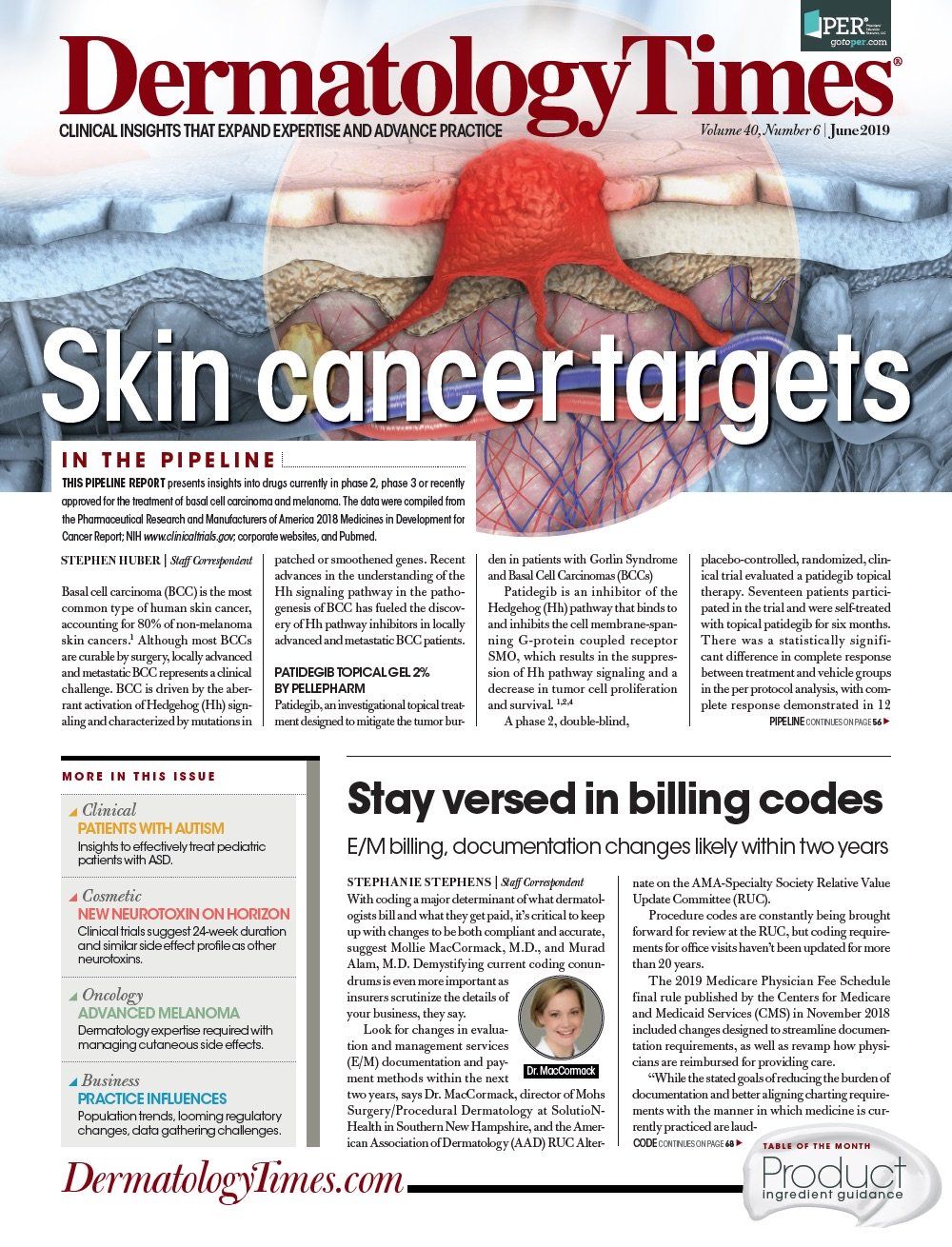- Case-Based Roundtable
- General Dermatology
- Eczema
- Chronic Hand Eczema
- Alopecia
- Aesthetics
- Vitiligo
- COVID-19
- Actinic Keratosis
- Precision Medicine and Biologics
- Rare Disease
- Wound Care
- Rosacea
- Psoriasis
- Psoriatic Arthritis
- Atopic Dermatitis
- Melasma
- NP and PA
- Skin Cancer
- Hidradenitis Suppurativa
- Drug Watch
- Pigmentary Disorders
- Acne
- Pediatric Dermatology
- Practice Management
- Prurigo Nodularis
- Buy-and-Bill
Publication
Article
Dermatology Times
Tips to minimize audit stress
Author(s):
Audits can be an unfortunate reality of practicing medicine. This expert explains the four main types of audits and offers tips to minimize audit stress.
Learn about the four main types of audits and how to best prepare for them. (designer49 - stock.adobe.com)

Dr. MacCormack

Audits can be an unfortunate reality of practicing medicine. The good news is that as long as you are practicing and coding correctly, you have nothing to fear should you be audited. There are four main types of audits:
1. Medicare Administrative Contractor
(MAC) Audits – These are intended to target improper payments and vulnerabilities. MACs are allowed to perform medical reviews for all claims and can do so by issuing an additional documentation request (ADR).
2. Comprehensive Error Rate Testing
(CERT) Contractors - Statistically analyze claims and establish rates and estimates of improper payments made by MACs. Such data review may take place with or without an ADR.
3. Recovery Audit Contractors
(RAC) – Designed to assess for medical necessity as well as to correct improper payments that have already been made.
4. Zone Program Integrity Contractor
(ZPIC) Audits - These are the most intimidating as they are designed to identify and stop potential fraud and abuse. Cases can be referred to the Department of Health and Human Services Office of Inspector General Office of Investigations.
Dermatologists are most likely to be confronted by a RAC audit. RACs are paid on a contingency fee basis, meaning that they collect a percentage of the improper payment they find or collect. There are currently four Recovery Audit Contractors covering different geographic regions of the United States (A 5th RAC deals with Hospice and Home Health Services).
Each RAC designs its own claims analysis system based on Medicare rules and regulations, coding/billing practices and clinical standards of care. If a provider is identified as possibly engaging in concerning practices, records can be requested with the number of charts allowed varying based on practice size. Reviews can be fully automated, semi-automated, or complex (performed by a human with medical records required).
If a RAC audit detects an overpayment a letter requesting repayment is sent. If payment is not made within 30 calendar days interest begins to accrue. If the first letter is ignored, a second is sent. Forty-one days after the first letter is sent recoupment, recovering payment from current or future claims can begin. If the case is still outstanding at 120 days it may be referred to the Department of Treasury.
RAC findings can be appealed through rebuttal or redetermination. Once notified, you have 30 days to provide additional documentation to the RAC before the claim is sent to the MAC for adjustment. If that effort is unsuccessful you can file a formal appeal in writing. There are five levels of appeal with the final being judicial review in a US District Court.
In October 2018, CMS introduced the Targeted Probe and Educate (TPE) program targeted towards those with high denial rates of uncommon billing practices. If selected, the regional MAC will review 20-40 claims and supporting medical records. If you are complaint, you are granted a one-year reprieve, if some claims are denied, you are invited to a one-on-one education session. Anyone not improving after three rounds of review and education (most improve after a single session) is referred to CMS.
TIPS TO MINIMIZE AUDIT STRESS
Clearly, being audited is an unpleasant experience. Here are a few tips to help you avoid the situation entirely or minimize stress should you be selected for an audit.
- Have a billing compliance plan and stay abreast of changes in coding/documentation requirements.
- Document clearly and correctly. Notes should be legible, signed and dated. Data used to determine level of service (including Review of Systems) must be pertinent to the issue being addressed. Modifiers must be used correctly, with particular attention paid to modifiers 24, 25 and 59.
- Data related to a procedure being performed during the same encounter cannot be used to increase the level of service (LOS) of the office visit.
- Ensure that all services provided and billed are medically necessary.
- Always use the correct code to describe the work being done.
- If you are billing based on time, document not only total time, but also how much time was spent in face-to-face counseling and a summation of the counseling discussion.
- Do not ignore the audit notice or delay responding.
- Answer any audit requests thoroughly and document each communication. Â







